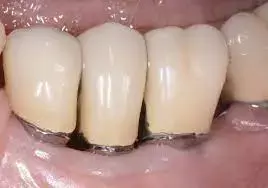- Home
- Medical news & Guidelines
- Anesthesiology
- Cardiology and CTVS
- Critical Care
- Dentistry
- Dermatology
- Diabetes and Endocrinology
- ENT
- Gastroenterology
- Medicine
- Nephrology
- Neurology
- Obstretics-Gynaecology
- Oncology
- Ophthalmology
- Orthopaedics
- Pediatrics-Neonatology
- Psychiatry
- Pulmonology
- Radiology
- Surgery
- Urology
- Laboratory Medicine
- Diet
- Nursing
- Paramedical
- Physiotherapy
- Health news
- Fact Check
- Bone Health Fact Check
- Brain Health Fact Check
- Cancer Related Fact Check
- Child Care Fact Check
- Dental and oral health fact check
- Diabetes and metabolic health fact check
- Diet and Nutrition Fact Check
- Eye and ENT Care Fact Check
- Fitness fact check
- Gut health fact check
- Heart health fact check
- Kidney health fact check
- Medical education fact check
- Men's health fact check
- Respiratory fact check
- Skin and hair care fact check
- Vaccine and Immunization fact check
- Women's health fact check
- AYUSH
- State News
- Andaman and Nicobar Islands
- Andhra Pradesh
- Arunachal Pradesh
- Assam
- Bihar
- Chandigarh
- Chattisgarh
- Dadra and Nagar Haveli
- Daman and Diu
- Delhi
- Goa
- Gujarat
- Haryana
- Himachal Pradesh
- Jammu & Kashmir
- Jharkhand
- Karnataka
- Kerala
- Ladakh
- Lakshadweep
- Madhya Pradesh
- Maharashtra
- Manipur
- Meghalaya
- Mizoram
- Nagaland
- Odisha
- Puducherry
- Punjab
- Rajasthan
- Sikkim
- Tamil Nadu
- Telangana
- Tripura
- Uttar Pradesh
- Uttrakhand
- West Bengal
- Medical Education
- Industry
Implantoplasty releases metal particles that may induce pro-inflammatory response

Implantoplasty releases metal particles that seem to induce a pro-inflammatory response according to a recent study published in the Scientific Reports
Peri-implantitis is defined as a pathological condition caused by bacterial biofilms and characterized by inflammatory changes in the peri-implant mucosa, with progressive bone loss around an osseointegrated dental implant. This biological complication can jeopardize implant-prosthetic restoration if left untreated. The treatment of peri-implant diseases includes the decontamination of the implant surface by means of mechanical, chemical or electrolytic techniques. It must be pointed out that the literature does not clearly indicate the superiority of one specific decontamination protocol over the others. In fact, most of these decontamination techniques are not able to completely remove the biofilm from the dental implant surface, probably due to the macro and micro-design of the implant and the defect configuration. Clinical studies have suggested that the resolution of the peri-implant disease may be influenced by other factors than the method of surface decontamination
Implantoplasty is a mechanical decontamination technique that consists of removing the threads and polishing and smoothing the dental implant surface. During implantoplasty there is a large release of titanium metal particles that might provoke a proinflammatory response and reduce the viability of osteogenic cells. We analyze the inflammatory and osteogenic response induced by Ti6Al4V particles released during implantoplasty and by as-received commercially pure Ti particles. Macrophages stimulated with metal particles obtained by implantoplasty and with as-received Ti particles showed an increased proinflammatory expression of TNF-α and a decreased expression of TGF-β and CD206. Regarding cytokine release, there was an increase in IL-1β, while IL-10 decreased. The osteogenic response of Ti6Al4V extracts showed a significant decrease in Runx2 and OC expression compared to the controls and commercially pure Ti extracts. There were no relevant changes in ALP activity.
Thus, implantoplasty releases metal particles that seemseem to induce a pro-inflammatory response and reduce the expression of osteogenic markers.
Reference:
Toledano-Serrabona, J., Bosch, B.M., Díez-Tercero, L. et al. Evaluation of the inflammatory and osteogenic response induced by titanium particles released during implantoplasty of dental implants. Sci Rep 12, 15790 (2022). https://doi.org/10.1038/s41598-022-20100-2
Dr. Shravani Dali has completed her BDS from Pravara institute of medical sciences, loni. Following which she extensively worked in the healthcare sector for 2+ years. She has been actively involved in writing blogs in field of health and wellness. Currently she is pursuing her Masters of public health-health administration from Tata institute of social sciences. She can be contacted at editorial@medicaldialogues.in.
Dr Kamal Kant Kohli-MBBS, DTCD- a chest specialist with more than 30 years of practice and a flair for writing clinical articles, Dr Kamal Kant Kohli joined Medical Dialogues as a Chief Editor of Medical News. Besides writing articles, as an editor, he proofreads and verifies all the medical content published on Medical Dialogues including those coming from journals, studies,medical conferences,guidelines etc. Email: drkohli@medicaldialogues.in. Contact no. 011-43720751


